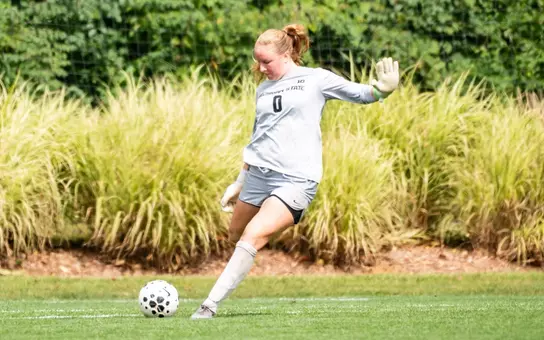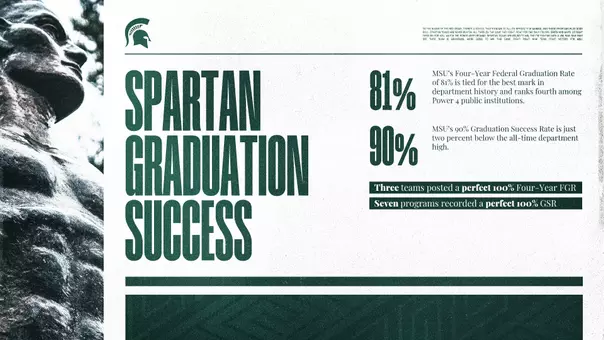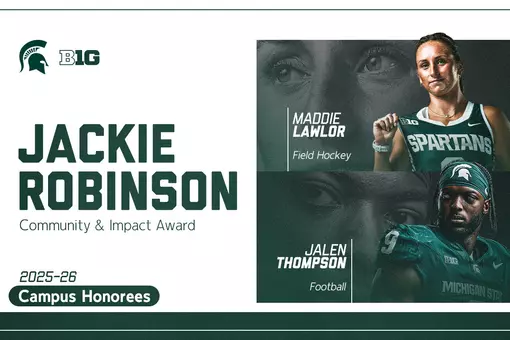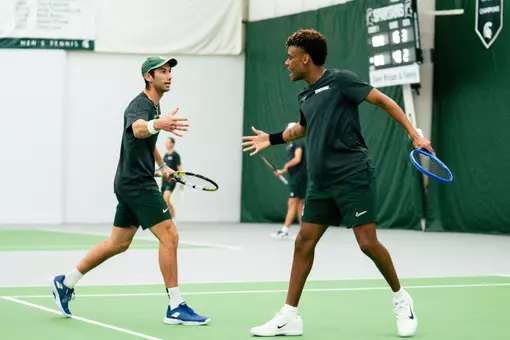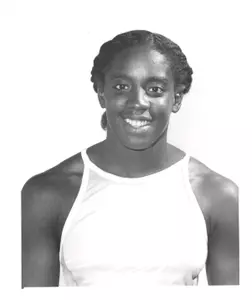
Patty James Oehmke: Swimmer & Educator
2/26/2007 12:00:00 AM | General
Feb. 26, 2007
February is Black History Month, and nowhere in major-college athletics is that history richer than at Michigan State University. From Gideon Smith, the first African-American football player at Michigan Agricultural College in 1913, to Steve Smith, an All-American basketball player whose contributions have a major impact today, it would take many months to tell the full story. In a series of profiles, longtime Michigan State beat writer and columnist Jack Ebling will highlight some of the greatest of the great. The seventh of those stories is swimmer and educator Patty James Oehmke.
PATTY JAMES OEHMKE
She won her first race, a 25-yard freestyle event, and burst into tears. It wasn't fair that other kids could swim for 20 seconds, and she had to stop after 15.
Patty James learned a lesson that day at age 5. More isn't always better. But the more she swam, the more she won. And the more she won, the more we saw from a rare talent and a special person.
James, now James Oehmke after her marriage in 1992, was inducted into Flint's African-American Hall of Fame on Sunday afternoon.
But once she arrived at Michigan State as a freshman in 1979, James Oehmke never left East Lansing. With degrees in hand, she has helped countless others stay afloat as assistant director of Intramural Sports and Recreative Services.
"I owe a lot to the Flint Community Schools and the Mott Program," James Oehmke said. "I started swimming lessons when I was 4 and won my first race a year later in Battle Creek. I vividly remember crying about it. But my mom still has the plaque - a cereal bowl with a swimmer diving into it."
When James Oehmke dove into her sport, a stream of trophies soon followed. She has kept the nameplates but donated most of the plaques and marble bases to charity.
"There were hundreds of them," James Oehmke said. "I never played basketball or softball. But my mom always wanted me to be exposed to other activities. I ice skated, studied judo till ninth grade and tried tennis and gymnastics so I'd be agile on land as well."
James Oehmke landed in Great Valley, N.Y., near St. Bonaventure, for swim camp at age 10 and gradually extended her stays till she spent almost all of her summers away from home.
A graduate of Flint Southwestern High during the Colts' glory years in boys sports, James Oehmke had Ivy League credentials and nearly enrolled at Penn. But one sweet memory refused to fade.
Her brother had been the drum major in the Spartan Marching Band a decade earlier. She used to ride her bike up and down the parade route for MSU's Homecoming.
"I didn't spend six summers there, but I felt comfortable on campus," James Oehmke said. "And the Spartans were dominant in women's swimming at the time under Jennifer Parks. She didn't think I'd come to Michigan State. But six of us did that year - all pretty recognizable swimmers."
In a sport with few blacks at the highest levels, James Oehmke stood out in more ways than one. That seldom bothered her, however.
"From my perspective, I didn't face discrimination," James Oehmke said. "It was more a state of shock that I was the only African-American there and generally the top seed."
Perhaps that acceptance had something to do with the income levels of elite-level swimmers. Instead of slamming doors on someone with a different complexion, parents of white competitors opened their homes and their hearts.
"We'd go to two-day meets and not have to get hotel rooms," James Oehmke said. "We'd stay with people in gigantic houses, places with indoor swimming pools. If there was discrimination, it was very well hidden."
That doesn't mean there was never a scare. But even then, James Oehmke has happy memories, though some people haven't been as lucky.
"We were headed to Ann Arbor for a meet and took a wrong turn," she recalled. "We were somewhere out in the boonies. And here came a guy with a gun and hunting dogs. He asked what we were doing, called the pool and got someone to come get us."
James Oehmke got plenty or chances to swim as a college freshman and didn't disappoint. Primarily a freestyle and butterfly sprinter, she competed two years in the AIAW ranks and two in NCAA competition, winning 31 times.
It never dawned on James Oehmke that she had found a home for the rest of his life. After earning her undergraduate degree in physical education, she stuck around for advance studies in health and exercise physiology and cardiac rehab, then in higher education administration.
"I was scheduled to go back to New York," James Oehmke said. "When I was offered a job for $16,000, my dad said, `All these years I've paid for you to swim. Now, someone wants to pay you. I think you should take it.'"
James Oehmke has taken advantage of her opportunities and become a key administrator, while rejecting opportunities to move. She met her husband, Jim, a professor of ag economics and a former swimmer at Yale, in an MSU pool. Their daughters, Theresa, 13, and Alexandra, 11, are swimmers and genetically blessed.
One of James Oehmke's favorite projects, the design and construction of a two-story fitness center in the IM West, was particularly successful. But her story is one of success in and out of the swimming pool.
That project took two years to compete. Unlike her first victory, she didn't cry because it ended too soon.

